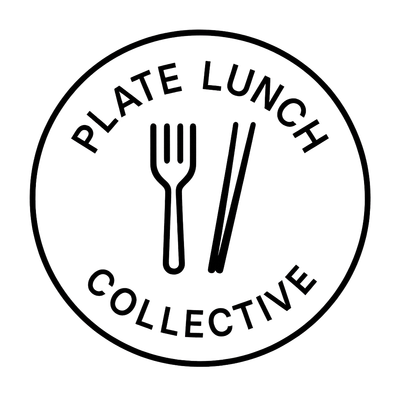Modern SEO & AI-Native Search Optimization

Headquartered in Hawai‘i, we provide SEO and discovery-layer optimization for brands across North America, Canada, Central America, and the Caribbean. We bridge 20 years of technical mastery with 2026-era optimization to ensure you dominate both traditional rankings and AI-mediated discovery.
We combine 20+ years of technical SEO mastery with 2026-era optimization for AI Overviews, ChatGPT, Perplexity, and voice assistants.
Built on 20 Years of SEO Fundamentals
AI-native search doesn't replace traditional SEO; it sits on top of it. Our approach ensures you are perfectly optimized for the "Ten Blue Links" while being the primary source for generative answers.
- Technical Mastery: Site architecture, schema markup, and core web vitals that AI engines use for trust signals.
- Semantic Content: Building authority through deep, expert-led content clusters.
- Local Authority: Dominating Hawaii and regional markets through optimized maps and local discovery networks.
The Search Visibility Gap Costing You Business
Google processes over 8.5 billion searches daily. Here's what most businesses miss: More than 50% of Google searches now trigger AI-powered responses before users ever see traditional rankings. That number has doubled since August 2024.
Right now, while you're reading this, someone is asking ChatGPT about the exact problem you solve, and ChatGPT isn't mentioning you. If your content isn't built for the retrieval layer, you're invisible. Learn why nobody is scrolling your feed—they're searching.
What AI Native SEO Actually Is
AI Native SEO optimizes your content to appear across AI-powered search experiences while maintaining traditional search visibility. It's not a bolt-on strategy; it’s a fundamental reorientation around how people actually find information now—through systems that synthesize, summarize, and cite rather than simply rank. You can see the real-world data of this shift in our AI Referral Traffic Intelligence Report.
Instead of just targeting keywords, we structure your expertise so AI systems cite you when prospects research solutions in your domain. When someone asks ChatGPT about your industry—your insights become part of the answer.
Why Intent Networks Matter More Than Keywords
Modern search operates on intent networks, not keyword matching. When someone searches "marketing automation for small business," AI systems don't just look for those exact words. They map the query across related concepts: workflow optimization, lead nurturing, and operational efficiency. We use semantic triples to help AI systems map your expertise across these concepts.
AI Native SEO positions your expertise across these intent networks so you're discoverable for dozens of related queries you never directly targeted. You become visible not just for the question someone asks, but for the twenty related questions they don't know to ask yet.
What You Get with AI Native SEO
Intent Network Mapping
We identify how your expertise connects across related topics and optimize for concept clusters rather than individual keywords. The result: AI systems understand your authority across the broader ecosystem of topics your prospects research, not just your primary services.
Modular Content Architecture
Content structured so AI systems can extract, combine, and cite relevant sections. This means building content that works as complete pieces and as components—paragraphs that stand alone, sections that answer specific questions, and frameworks that AI systems can reference.
AI-Compatible Optimization
Technical and structural optimization ensuring your content performs in AI Overviews, ChatGPT responses, and Perplexity citations while maintaining traditional search visibility. This includes schema markup that AI systems parse effectively and content hierarchy that supports extraction.
Semantic Authority Development
Building expertise signals that help AI systems position you as an authoritative source across broader topic areas. AI systems favor sources that show clear domain knowledge. We build that knowledge visibility systematically.
Cross-Platform Performance Tracking
Measurement beyond traditional rankings: AI Overview inclusion, ChatGPT citations, and Perplexity references alongside organic traffic and conversion metrics. You see exactly where you appear across platforms and how AI-mediated discovery drives business results.
How AI Native SEO Works in Practice
A consulting firm came to us after watching their search traffic plateau despite ranking well for "business consulting Hawaii". They were top three in traditional rankings, but invisible when prospects used ChatGPT to research "how to scale a service business".
After restructuring for AI Native SEO, they appeared in AI Overviews for 47 related queries they'd never targeted, and traditional organic traffic increased 68% as intent network visibility improved overall search presence. Their expertise became discoverable across the entire network of topics their prospects care about.
Strategic Multipliers: Targeted Marketing Support
If you already have marketing leadership but need specific project-based support, we provide targeted consulting services for brands in the US, Canada, and the Caribbean:
- Marketing Campaign Strategy & Market Testing: Strategic planning to validate messaging before you scale globally.
- Marketing Operations & Workflow Optimization: Streamlining systems and eliminating bottlenecks in multi-region workflows.
- Marketing Performance Analysis & Strategy Audits: Data-driven insights and AI-readiness audits.
About the Lead Strategist
Hayden Bond is a digital marketing consultant with more than 20 years of SEO experience. Having navigated every major algorithm shift since the mid-2000s, he founded Plate Lunch Collective to help businesses evolve into AI-native entities.
His current research focuses on the mechanics of modern discoverability—analyzing how Generative Engine Optimization works for Shopify merchants and why optimizing for intent networks has replaced traditional keyword matching. When not embedded with client teams in the US Mainland or Canada, he is based out of Honolulu, O‘ahu.
Lead Your Search Strategy Into the AI Era
Whether you’re based in Hawaii or scaling across North America, Central America, Canada, or the Caribbean, your business needs to be discoverable where the search happens.
